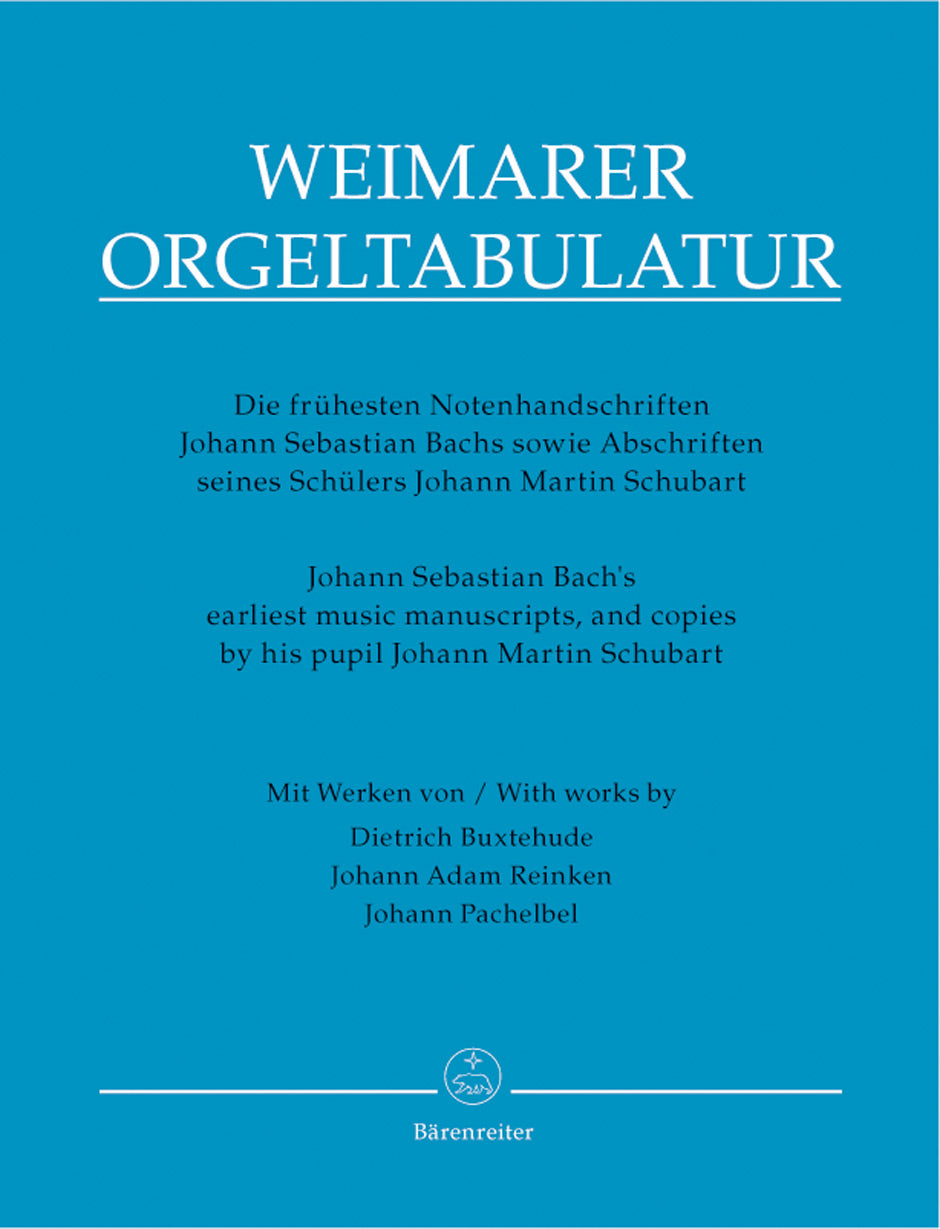

BARENREITER - 345062
Weimarer Orgeltabulatur. Bach's Earliest Music Manuscripts, and copies by his pupil Johann Martin Schubart
Composer: Johann Sebastian Bach
Publisher: Bärenreiter
Instrumentation: Organ
Binding: Paperback
Dimensions: 11.8 in x 9.1 in
Pages: 48
Weimarer Orgeltabulatur. Bach's Earliest Music Manuscripts, and copies by his pupil Johann Martin Schubart
Juilliard Store
144 West 66th Street
New York NY 10023
United States
Choose options

Weimarer Orgeltabulatur. Bach's Earliest Music Manuscripts, and copies by his pupil Johann Martin Schubart
Juilliard Store
144 West 66th Street
New York NY 10023
United States
Weimarer Orgeltabulatur. Bach's Earliest Music Manuscripts, and copies by his pupil Johann Martin Schubart
Juilliard Store
144 West 66th Street
New York NY 10023
United States
Editor: Maul, Michael / Wollny, Peter
Orchestral scoring : Org
Product format: Performance score
Binding: Paperback
Pages / Format: XXXV, 48 - 30,0 x 23,0 cm
In Weimar , Peter Wollny and Michael Maul have discovered copies of works by Dietrich Buxtehude and Johann Adam Reinken made by Bach between the ages of twelve and fifteen.
This publication contains facsimiles followed by a transcription of the original tablature notation as a critical edition. It includes an extensive foreword which describes the source and the likely conditions in which Bach made the transcriptions. This publication provides the first reliable edition of Reinken’s “An Wasserflüssen Babylon” and the earliest source of Buxtehude’s “Nun freut euch , lieben Christen g’mein ”. Two chorale preludes by Pachelbel set the performing practice scene of the time; the numerous ornaments are probably even by Bach himself.
- Scholarly-critical edition of the earliest known music manuscripts in Bach’s hand
- Significant works from the 17th century North German organ repertoire
·
Schriftbefund und Datierungsfragen
·
Zum Schreiber der Faszikel III und IV
·
Überlieferung
·
Konkordanzen und Verbindungen zu anderen Sammlungen
·
Ohrdruf (1695-1700)
·
Lüneburg (1700-1702?)
·
Hamburg 1720
·
Anmerkungen
·
Schriftproben Bachs im Vergleich
·
Preface:
·
Handwriting and Date of Origin
·
The Scribe of Fascicles III and IV
·
Transmission
·
Concordances and Ties to Other Collections
·
Ohrdruf (1695-1700)
·
Lüneburg (1700-1702?)
·
Hamburg (1720)
·
Notes
·
Comparative samples of Bach's handwriting
·
Übertragung - Transcription:
·
I Johann Adam Reinken: An Wasserflüssen Babylon
·
II Dietrich Buxtehude: Nun freut euch, lieben CHristen g'mein
·
III Johann Pachelbel: An Wasserflüssen Babylon
·
IV Johann Pachelbel: Kyrie Gott Vater in Ewigkeit
·
Johann Pachelbel: Fuga
·
Kritischer Bericht - Critical Report
